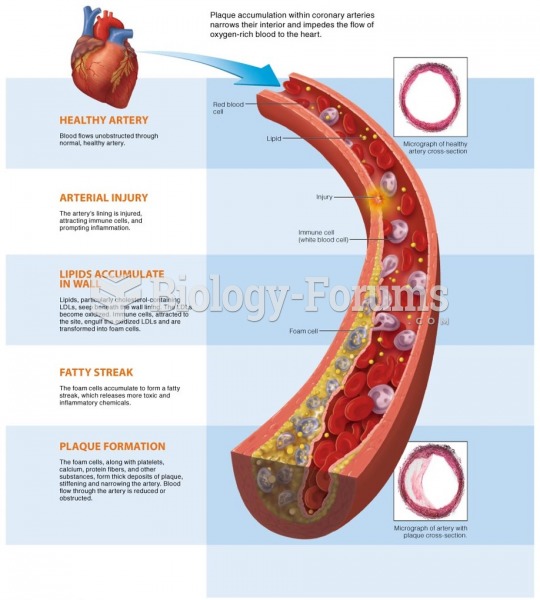|
|
|
The cure for trichomoniasis is easy as long as the patient does not drink alcoholic beverages for 24 hours. Just a single dose of medication is needed to rid the body of the disease. However, without proper precautions, an individual may contract the disease repeatedly. In fact, most people develop trichomoniasis again within three months of their last treatment.
The U.S. Preventive Services Task Force recommends that all women age 65 years of age or older should be screened with bone densitometry.
After a vasectomy, it takes about 12 ejaculations to clear out sperm that were already beyond the blocked area.
Nearly 31 million adults in America have a total cholesterol level that is more than 240 mg per dL.
The first oncogene was discovered in 1970 and was termed SRC (pronounced "SARK").







